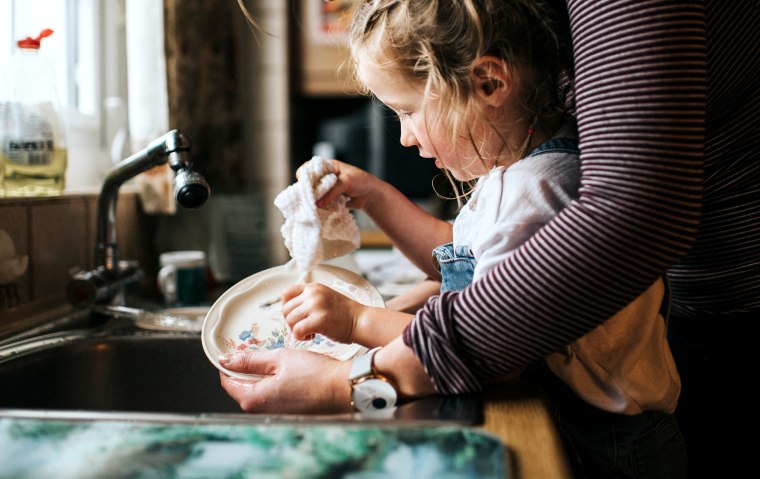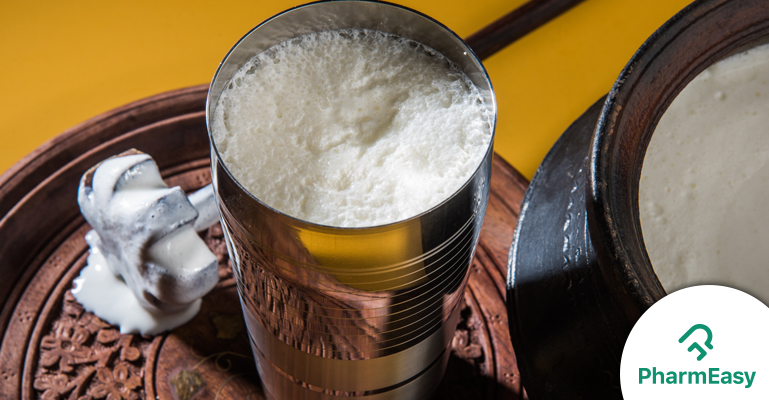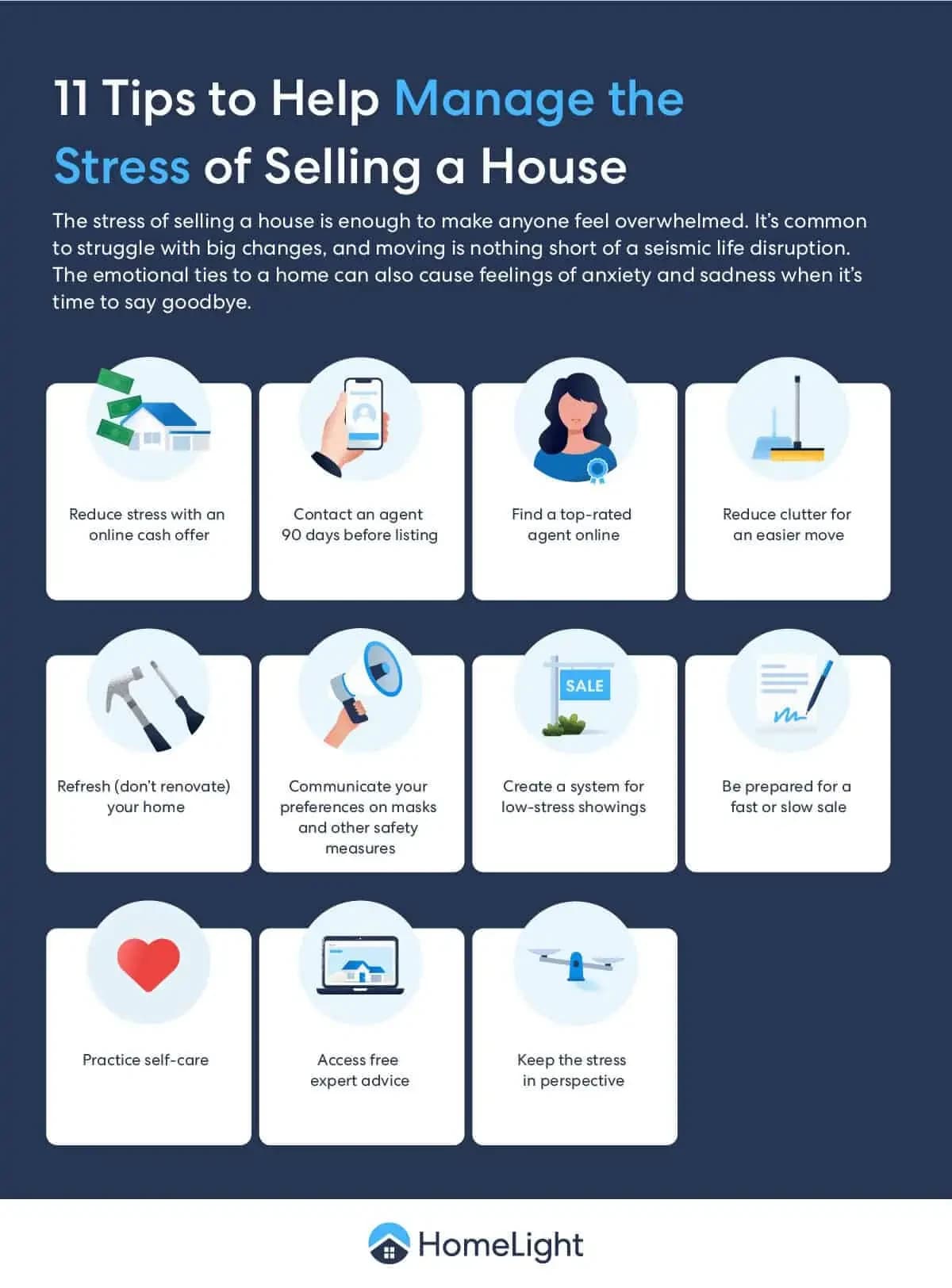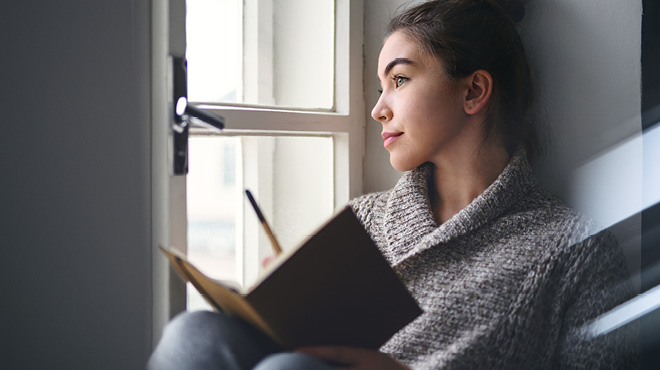To ease anxiety at home, you can practice relaxation techniques, engage in physical activity, prioritize sleep, try mindfulness practices, and engage in self-care activities. These methods can help reduce stress and promote a sense of calm.
They include exercises, meditation, walking, herbal medicine, and mind-body practices. By incorporating these strategies into your daily routine, you can effectively manage anxiety and improve your overall well-being. Remember, taking care of your mental health is essential, and these simple yet effective techniques can provide relief and support in the comfort of your own home.

Credit: www.nbcnews.com
1. Understanding Anxiety And Its Management
Discover effective ways to ease your anxiety at home with these 11 tips. From practicing mindfulness and relaxation techniques to incorporating exercise and making dietary adjustments, you can take control of your anxiety and find relief in the comfort of your own home.
1.1 What Is Anxiety?
Anxiety is a natural response to stress, but for some individuals, it can become overwhelming and interfere with daily life. It is characterized by feelings of tension, worry, and agitation. Anxiety can manifest in various ways, such as panic attacks, obsessive-compulsive behaviors, social anxiety, or specific phobias. Understanding what anxiety is and its different forms is the first step in managing and alleviating its impact on our lives.1.2 Common Symptoms Of Anxiety
Recognizing the symptoms of anxiety can help us identify when we are experiencing it and take appropriate steps to manage it. Common symptoms include excessive worrying, restlessness, irritability, difficulty concentrating, sleep problems, muscle tension, and a sense of impending doom. It’s important to remember that everyone’s experience with anxiety may be different, and symptoms can range in severity. By recognizing these symptoms, we can start to implement strategies to manage anxiety effectively.1.3 Ways To Manage Anxiety Disorders
Managing anxiety disorders involves a combination of self-help strategies, therapy, and sometimes medication. Here are some effective techniques that can help alleviate anxiety:- Learning about anxiety: Understanding the nature of anxiety and its triggers can provide valuable insights into managing it.
- Mindfulness: Practicing mindfulness meditation and being present in the moment can help reduce anxiety symptoms.
- Relaxation techniques: Deep breathing exercises, progressive muscle relaxation, and guided imagery can promote relaxation and calm the mind.
- Correct breathing techniques: Learning diaphragmatic breathing can help regulate our body’s stress response and promote relaxation.
- Dietary adjustments: A healthy diet rich in fruits, vegetables, whole grains, and lean proteins can support our overall well-being and help manage anxiety.
- Exercise: Regular physical activity, such as walking, yoga, or dancing, releases endorphins and reduces anxiety symptoms.
- Learning to be assertive: Developing assertiveness skills can help reduce anxiety related to interpersonal relationships and improve self-confidence.
- Building self-esteem: Engaging in activities that promote self-worth and self-care can help boost confidence and reduce anxiety.
- Cognitive therapy: Cognitive-behavioral therapy (CBT) helps identify and challenge negative thought patterns and replace them with more positive and realistic ones.
- Exposure therapy: Gradually exposing ourselves to feared situations or objects can help reduce anxiety related to phobias or specific triggers.
- Structured problem-solving: Breaking down problems into manageable steps and brainstorming solutions can alleviate anxiety caused by uncertainty and decision-making.
- Support groups: Connecting with others who are going through similar experiences can provide a sense of belonging and valuable emotional support.

Credit: pharmeasy.in
2. Relaxation Techniques For Anxiety
When it comes to managing anxiety, relaxation techniques can play a crucial role in easing your mind and promoting a sense of calmness. By incorporating these techniques into your daily routine, you can take control of your anxiety and find peace within the comfort of your own home.
2.1 Visualization Techniques
Visualization techniques are a powerful tool for easing anxiety and promoting relaxation. By creating vivid mental images of calming and peaceful scenes, you can transport your mind away from the stressors of everyday life. Here are a few visualization techniques you can try:
- Imagine yourself lying on a beautiful beach, feeling the warm sun on your skin and hearing the soothing sound of ocean waves.
- Visualize yourself in a serene garden surrounded by blooming flowers, lush greenery, and the gentle scent of nature.
- Create a mental picture of yourself floating on a cloud, weightless and free from any worries or tension.
2.2 Meditation And Yoga
Meditation and yoga are highly effective relaxation techniques that have been practiced for centuries. Through meditation, you can quiet your mind, focus on your breath, and cultivate a sense of mindfulness. Yoga combines gentle movements with deep breathing exercises to promote physical and mental relaxation. Here are a few simple meditation and yoga exercises you can try at home:
- Find a quiet space and sit comfortably with your eyes closed. Take deep breaths in and out, focusing your attention on the sensation of your breath entering and leaving your body. Allow any thoughts or worries to pass by without attachment.
- Try a guided meditation app or video that provides step-by-step instructions for deep relaxation and inner peace.
- Roll out a yoga mat and start with basic yoga poses, such as child’s pose, downward dog, and corpse pose. Focus on your breath and the sensations in your body as you move through each pose.
2.3 Breathing Exercises
Proper breathing techniques can have a profound impact on reducing anxiety and promoting relaxation. By practicing deep breathing exercises, you can activate your body’s natural relaxation response. Here are a few breathing exercises you can incorporate into your daily routine:
- Take a deep breath in through your nose for a count of four, hold your breath for a count of four, and exhale slowly through your mouth for a count of four. Repeat this cycle several times.
- Place one hand on your chest and the other hand on your abdomen. Take a slow, deep breath in through your nose, allowing your abdomen to rise as you fill your lungs with air. Exhale slowly through your mouth, feeling your abdomen fall as you release the breath.
- Try alternate nostril breathing by using your thumb to close your right nostril, inhaling through your left nostril, then closing your left nostril with your ring finger and exhaling through your right nostril. Repeat this cycle several times, alternating nostrils.
By incorporating these relaxation techniques into your daily routine, you can create a nurturing environment at home that promotes inner peace and calmness. Give yourself permission to prioritize self-care and invest time in practicing these techniques. You deserve to live a life free from anxiety and filled with serenity.
3. Natural Remedies And Self-care For Anxiety
Discover 11 effective ways to ease your anxiety at home with natural remedies and self-care techniques. From practicing mindfulness and relaxation exercises to incorporating proper breathing techniques and making dietary adjustments, these strategies can help you manage and reduce anxiety symptoms.
When it comes to finding relief from anxiety, natural remedies and self-care practices can be incredibly effective. Incorporating these strategies into your daily routine can help alleviate symptoms and promote a sense of calm and well-being. In this article, we will explore three powerful techniques that can help ease anxiety at home: exercise and mindfulness practices, herbal medicine, and acupuncture and movement.
3.1 Exercise And Mindfulness Practices
Exercise and mindfulness practices are excellent tools for managing anxiety. Regular physical activity not only boosts endorphins and reduces stress hormones, but it also improves overall well-being. Whether it’s going for a walk, practicing yoga, or engaging in aerobic exercises, finding an exercise routine that suits your preferences can greatly benefit your mental health.
Mindfulness practices, such as meditation and deep breathing exercises, can help you develop a greater sense of calm and focus. By consciously directing your attention to the present moment, you can reduce anxiety and bring a sense of clarity to your thoughts. Incorporating these practices into your daily routine, even for just a few minutes, can make a significant difference in managing anxiety.
3.2 Herbal Medicine
Herbal medicine has long been used as a natural remedy for anxiety. Certain herbs and botanical extracts have calming properties that can promote relaxation and reduce stress. Some popular herbs for anxiety include chamomile, lavender, valerian, and passionflower.
You can incorporate these herbs into your routine by drinking herbal teas, using essential oils, or taking herbal supplements. Before incorporating any herbal remedies into your routine, it’s important to consult with a healthcare professional or herbalist to ensure they are safe and suitable for your individual needs.
3.3 Acupuncture And Movement
Acupuncture and movement therapies, such as tai chi and qigong, can also be beneficial for managing anxiety. Acupuncture involves the insertion of thin needles into specific points on the body, which is believed to rebalance energy flow and promote relaxation. It has been found to be effective in reducing anxiety symptoms and improving overall well-being.
Movement practices like tai chi and qigong combine gentle physical movements, breath control, and meditation. These practices promote relaxation, improve focus, and help release tension from the body. Incorporating acupuncture or movement therapies into your routine can provide a holistic approach to managing anxiety.
In conclusion, natural remedies and self-care practices provide valuable tools for easing anxiety at home. By incorporating techniques such as exercise and mindfulness practices, herbal medicine, and acupuncture and movement, you can find relief from anxiety and promote a greater sense of well-being.

Credit: roomsantacruz.com
Frequently Asked Questions For 11 Ways To Ease Your Anxiety At Home
What Is The 3 3 3 Rule For Anxiety?
The 3 3 3 rule for anxiety is a grounding technique that involves focusing on three things you can see, three things you can hear, and three things you can touch. This helps to bring your attention to the present moment and reduce anxiety.
What Helps Severe Anxiety?
To help with severe anxiety, you can try learning about anxiety, practicing mindfulness and relaxation techniques, adjusting your diet, exercising, learning assertiveness, building self-esteem, engaging in cognitive therapy, trying exposure therapy, taking medication, and joining support groups.
How I Got Over My Severe Anxiety?
To overcome severe anxiety, you can try relaxation techniques like visualization, meditation, and yoga. Prioritize getting enough sleep and talk to your healthcare provider if you’re having trouble sleeping. Engaging in physical activity and practicing self-care activities like exercise and mindfulness can also help reduce anxiety.
Natural remedies like herbal medicine and mind-body practices can be beneficial. Seek therapy, take medications, or join support groups if needed.
What Can You Do On A Bad Anxiety Day?
On a bad anxiety day, try some physical activity like going for a walk or doing breathing exercises. Engage in self-care activities, such as exercise and mindfulness practices, to help reduce stress and anxiety. Seek support from support groups or consider medication if needed.
Conclusion
There are various ways to ease anxiety at home. Practicing relaxation techniques like visualization, meditation, and yoga can be helpful. It’s important to prioritize sleep and engage in physical activity to cope with anxiety. Self-care activities such as exercise and mindfulness practices can also reduce stress.
Additionally, natural remedies like chamomile and acupuncture can manage symptoms of anxiety. By implementing these strategies, you can effectively ease anxiety and improve your overall well-being.


